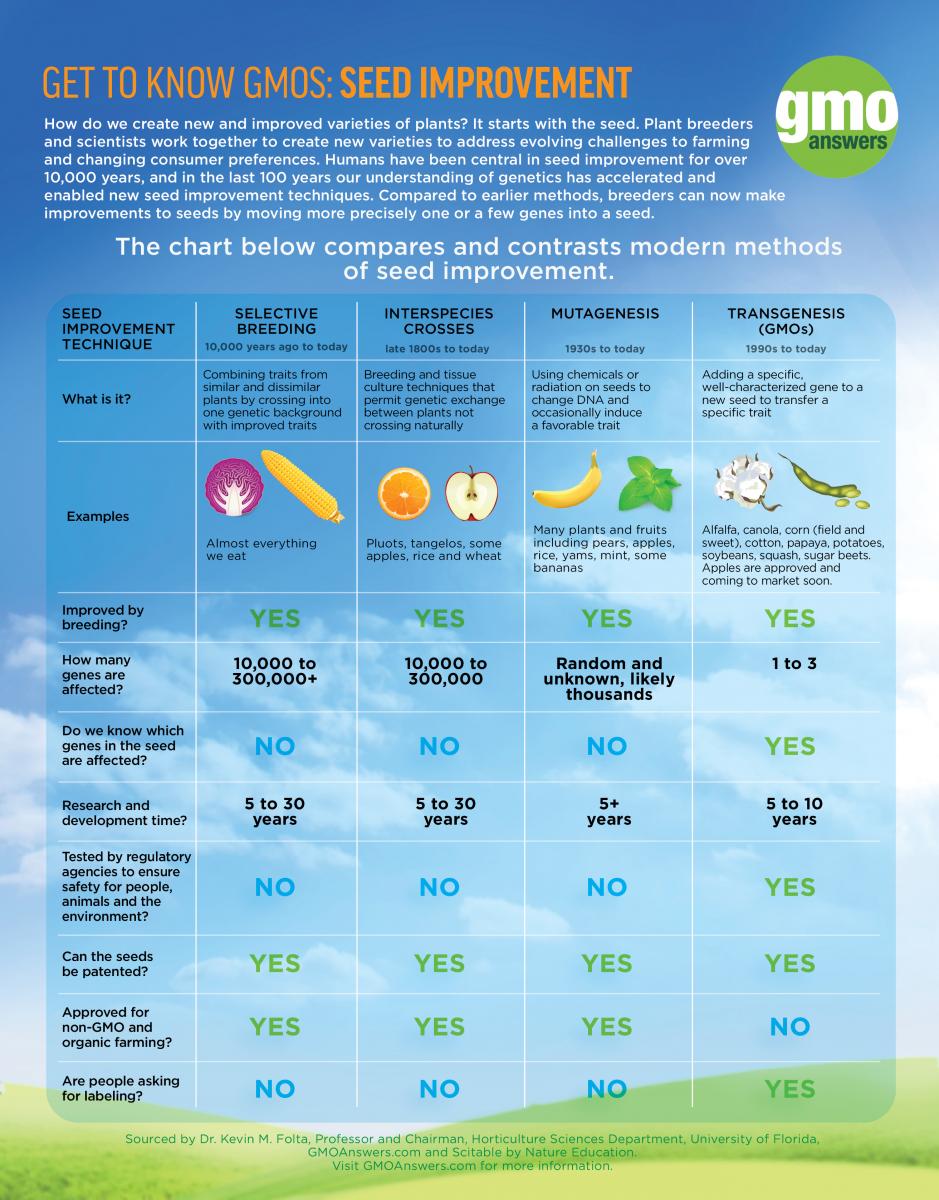Question
The people want to know if their foods have been genetically engineered or altered in anway. Why is Monsanto spending so much money lobbying our government? Why do they want to keep us in the dark about whats in our food? If a business cant produce a product honestly and transparently then it shouldnt be in business.
Submitted by: Adam Kain
Answer
Expert response from Community Manager
Moderator for GMOAnswers.com
Wednesday, 01/06/2016 19:51
While nearly all foods today have been genetically modified or altered in some way over thousands of years through selective breeding, there are only nine commercially available GMO crops in the U.S: soybeans, corn (field and sweet), canola, cotton, alfalfa, sugar beets, summer squash, papaya and potatoes. GMO apples have also been approved to be grown and will be coming to market soon.
Today, many GMOs are made by taking a desired trait, like disease resistance, from one plant or organism and transferring it to the plant we want to improve. Others are made by helping plants use a natural process to adjust a gene expression within a plant. This can help plants protect themselves from certain viruses and pests. These modifications are done at the genetic level, with changes made to the DNA of a plant before it ever becomes a seed or a crop. Learn more about this process in detail here.
Below is a chart that compares and contrasts modern methods of seed improvement from selective breeding to genetic modification.

You can learn more about the history of different breeding techniques and how they are applied here. See the full Get To Know GMOs presentation on myths and facts about GMOs and how food is modified here.
In regards to your question about “Monsanto spending so much money lobbying our government,” Farmer Kevin Richards explains why companies want to help preserve a predictable legal and regulatory environment to do business in.
“The federal government could dramatically reduce uncertainty, and at the same time eliminate a large lobbying incentive, if this policy were articulated and defended more clearly and if it were made explicit that food labeling is a federal authority that would become very fragmented and costly for farmers, food manufacturers and consumers if the rules varied across the country.”
Read his full take on lobbying and regulatory process here. Richards also addresses lobbying in a separate response here.
“One thing seems fairly objective and clear to me though: so long as corporations are following the rules, there is no basis for discriminating against them because they happen to be large, or they happen to do business in a particular sector like food and agriculture, or we happen to disagree with them. Given the important role that voice and access play in the policy process of a well-functioning democracy, it doesn’t seem fair to skew the playing field against shareholders and their representatives who are competing to have their voice heard. Corporations aren’t the only ones spending money. Activist groups, non-profit organizations, trade organizations, and individuals also spend millions of lobbying, campaign and advertising dollars every year.”
Former executive director for Council for Biotechnology Information (CBI), Cathy Enright, discusses how companies support the right of consumers to choose their food and how companies do support mandatory labeling in order for consumers to purposefully not be kept in the dark when it comes to their food. Read her full response here.
We hope this addresses your question. If you have any additional questions, please ask!